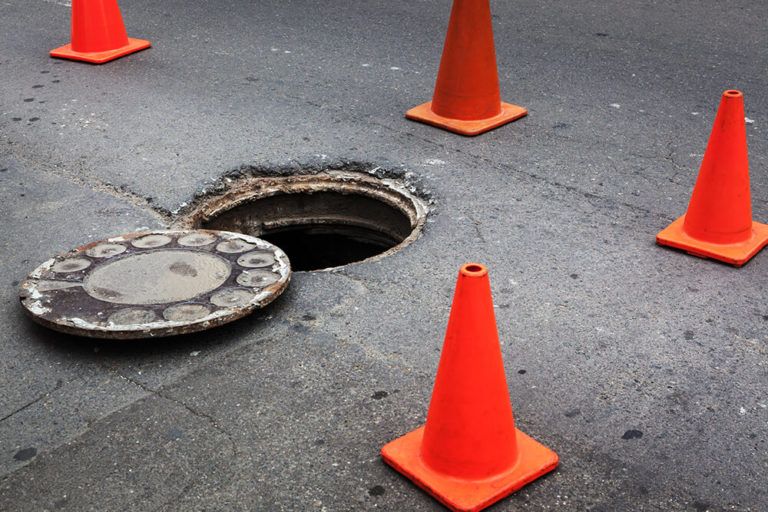
START YOUR FREE CONSULTATION
NO FEES UNLESS WE WIN!
Call (702) 382-0000 for a free consultation
What is negligence?
Negligence means fault. In specific situations, a person has a legal responsibility not to cause an accident and/or harm anyone. This is called duty. A duty may be attached to a job, such as a physician or a store owner, or it may be attached to daily tasks like walking a dog or driving a car.
The duty may be to obey traffic laws. The duty may be not to do something. An example of a duty not to do something would be a surgeon not causing an additional injury to a patient.
Related: Elements of Negligence
Isn’t reckless the same as negligence?
No. Negligence is different than recklessness.
In fact, a person can be reckless in an accident and injure you but not owe you money. Recklessness is acting in an unsafe or unlawful way that shows a disregard for human life or property. Recklessness focuses on behavior. The person knows their behavior may cause harm, but they don’t care.
Negligence focuses on the person’s responsibility to avoid causing an accident and injuring someone.
Are there different types of negligence?
Yes. A person can be negligent in many different ways, such as:
- Gross negligence: When a person is so careless that they display a complete lack of concern for other people’s safety, it’s called gross negligence. This lack of concern goes beyond simple neglect and is considered more serious than general negligence. An example of gross negligence is a nursing home not changing a patient’s bandages for several days.
- Contributory negligence: Contributory negligence is a defendant’s defense in a personal injury case to bar a plaintiff from obtaining damages. The defendant shows the court the plaintiff’s action or inaction contributed to the accident. Contributory negligence isn’t used in Nevada.
- Comparative negligence: This is another defense where the defendant tries to decrease the amount owed to the plaintiff. The defendant will claim the plaintiff contributed to the accident. Their action or inaction shows a decrease in their award by a percent. The plaintiff will still get paid, but a lesser amount.
What are the factors that affect negligence?
In Nevada, an injured person’s actions affect negligence. Nevada is a comparative negligence state. A defendant can raise this defense to pay a plaintiff less money. As mentioned before, if found partly at fault, the plaintiff will have a percentage deducted. The state sets a limit on a plaintiff’s fault.
A plaintiff must be less than 51 percent at fault for the accident. For instance, if the jury awarded a plaintiff $10,000 for their injuries. The jury found the plaintiff 50 percent liable for the accident. The plaintiff would receive $5,000.
However, if the plaintiff was 52 percent responsible for the accident, they may not receive any damages.
What needs to be shown to prove negligence?
Proving negligence is complex because it must be done in four steps or elements. These elements are links in a chain. Each one must be proven for a plaintiff to receive money. The following are the elements a plaintiff needs to establish to prove negligence:
- Duty of care: The defendant has a responsibility to follow laws, policies or procedures to avoid causing an accident and/or harm to you
- Breach of duty: A breach of duty refers to a defendant negligently causing an accident that injured you. Nevada uses a reasonable person test. If a reasonable person in the same or similar situation as the defendant would have acted differently, then the defendant breached their duty. An attorney will often use expert testimony to prove a defendant breached their duty to their client.
- Cause: The law requires the plaintiff to link their injuries to the defendant’s breach of duty. Nevada doesn’t assume the defendant was the cause of your injuries. You could have been injured prior to the accident. You see this in a lot of medical malpractice cases where a plaintiff is already injured when seeking medical treatment from a physician. That’s why you must how the defendant’s actions caused your injuries.
- The defendant owes damages: This is another element where the law gives the defendant the benefit of the doubt. A plaintiff has the burden of showing they incurred damages for the injuries the defendant caused. Damages include:
How long do I have to file an injury claim?
Nevada limits how long a person can sue for negligence. You have two years from the date of the accident. The law gives no extra time if you negotiate a settlement with the wrongful party. Once the two pass, you’re barred from filing a lawsuit for the negligent acts of the person who harmed you.
Contact our experienced injury attorneys
Nevada negligence laws are diverse and complex because of elements, time limits, and who you can sue. Negligence is how a plaintiff receives money in an accident that wasn’t their fault. You want to speak to an experienced attorney about the type of negligence that occurred in your case. Also, you want to have as much legal protection as possible when negotiating a settlement, calculating damages, or seeking justice in court.
Related: How Long Do I Have to File an Injury Claim in Nevada?
Call (702) 382-0000 for a free consultation
Adam S. Kutner is a top 100 trial lawyer with 33 years’ experience and expertise that will benefit you
Call us at (702) 382-0000 anytime to schedule a free consultation. We will work to get you the maximum settlement as quickly as possible so you can move forward on your healing journey.
START YOUR FREE CONSULTATION
NO FEES UNLESS WE WIN!
Home visits are available
Call now for details
SE HABLA ESPAÑOL

Adam S. Kutner
PERSONAL INJURY LAWYER
With more than 33 years of experience fighting for victims of personal injury in the Las Vegas Valley, attorney Adam S. Kutner knows his way around the Nevada court system and how to get clients their settlement promptly and trouble-free.














